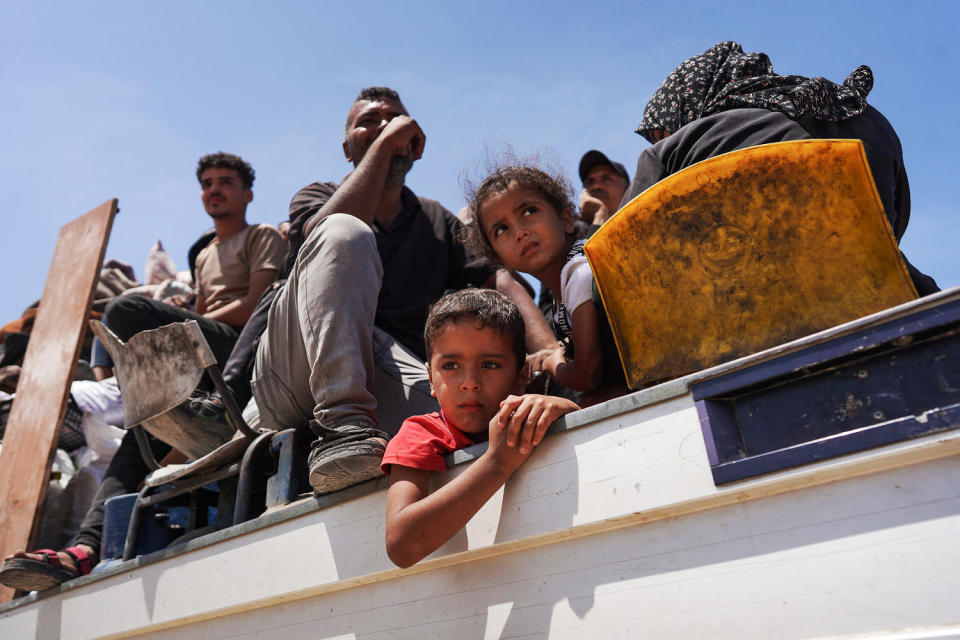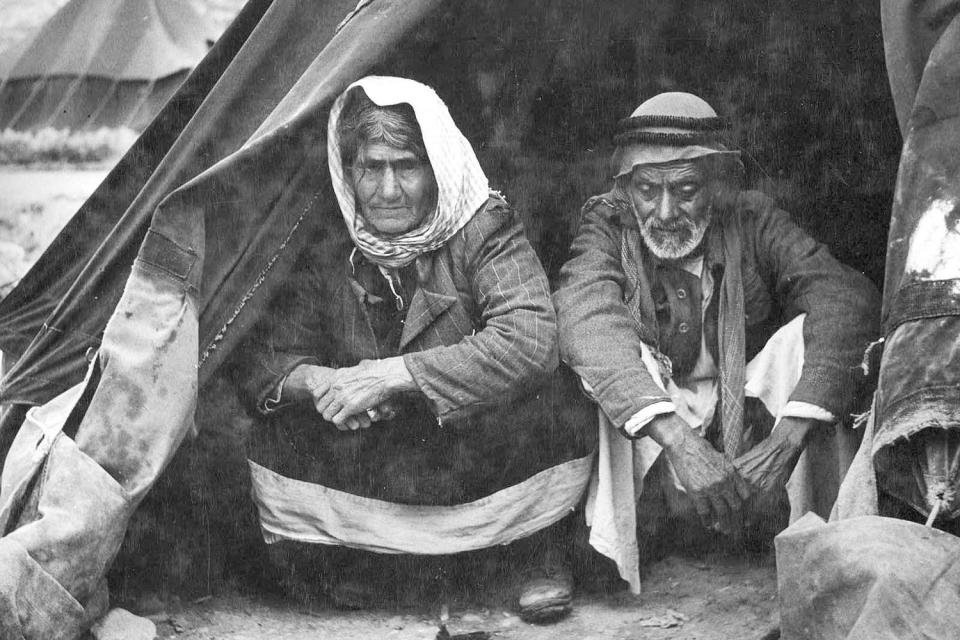Palestinians forced to flee Rafah as Gazans mark bitter Nakba anniversary
Palestinians on Wednesday marked the anniversary of their expulsion from what is now Israel facing a new mass displacement, as thousands more fled Rafah in the face of a deepening Israeli military operation.
Hundreds of thousands of people have been driven out of the city in southern Gaza, once declared a “safe zone,” since Israel ordered evacuations and sent in ground forces — largely shutting the two main border crossings for an area desperately short of food and fuel.
Defying U.S. pressure, Israel has pursued a campaign it says is focused on Hamas militants, but many Palestinians say the situation in Gaza is now a humanitarian catastrophe like the “Nakba” of 1948, when around 700,000 Palestinians were forced from their homes for the founding of Israel.
“The memory of the Nakba once again returns to our minds. We used to live with this painful memory, mainly because we heard about it from our ancestors, we studied in our schools, and we always browsed the information that talked about it,” Mohamed Garboa, 34, told an NBC News crew in Gaza on Wednesday after having fled Rafah to Muwasi, a nearby coastal area where Israel has promised an “expanded humanitarian area” will await people.
“But this time, we are living the Nakba again and witnessing what is happening around us,” he said. “We are suffering once again from the Israeli war machinery. What happened in 1948 is now happening on a larger and more complicated scale.”
Echoing his comments, Umm Mohammed, 80, who survived the Nakba, said there was “no catastrophe worse” than the one currently unfolding in Gaza.

“Our homes have gone, our children have gone, our property has gone, our gold has gone, our incomes have gone — nothing is left, Mohammed said in an interview with Reuters in Rafah on Wednesday. “What is left for us to cry over?”
Protests marking the anniversary of the Nakba have erupted around the world in recent days, calling for a cease-fire to end the more than seven months of fighting in Gaza.
More than 35,000 people have been killed in the Palestinian enclave since Israel launched its deadly offensive, local health officials say, following Hamas' Oct. 7 attacks, in which 1,200 people were killed and around 250 others were taken hostage into Gaza, according to Israeli officials.
Nearly a quarter of Gaza's population has been displaced anew in just the past week.
About 600,000 people have fled from Rafah since Israel launched its operations in the city on May 6, according to UNRWA, the United Nations agency for Palestinian refugees.
Meanwhile, in northern Gaza, families have also been displaced by fresh fighting in areas that Israel previously said it had cleared of Hamas' presence. As of Monday, 100,000 people had been displaced there, Farhan Haq, deputy spokesman for the U.N. secretary-general, said at a news briefing that day.
Many have fled to areas in Muwasi and Khan Younis in central Gaza following the Israeli military’s evacuation orders, while others have gone to places like the city of Deir al-Balah and the Nuseirat camp in the north.
According to figures the Internal Displacement Monitoring Center, or IDMC, released Tuesday, there were 3.4 million "new movements" in Gaza in the last quarter of 2023, leaving 1.7 million people internally displaced by the end of the year.
Internal displacement in the enclave contributed to a record of 75.9 million internally displaced people around the world by the end of 2023, the organization said.
"In just three months, 83% of the strip's population was internally displaced," Vicente Anzellini, global and regional analysis manager at the IDMC, said in a phone interview. And, he said, "many people were told to evacuate to areas that got bombed," echoing an NBC News investigation highlighting a series of deadly strikes in areas that had explicitly been designated as safe zones.
The repeated displacements, Anzellini said, have deepened a growing humanitarian crisis, as aid deliveries into the enclave have been far and few between after both the Rafah and the Kerem Shalom crossings were closed last week.
The Israeli military has said the Kerem Shalom crossing was reopened, with an additional passageway, the "Western Erez" crossing, opened in coordination with the U.S. to allow aid in. But humanitarian groups maintain that only limited amounts of aid are flowing into the enclave.

Meanwhile, a number of people identified as Israeli settlers could be seen appearing to damage and destroy aid bound for Gaza in video recorded Monday and geolocated by NBC News.
Those scenes drew criticism from Washington, increasingly at public odds with its close ally.
But the Biden administration is moving ahead with more than $1 billion in additional arms and ammunition to Israel, even though the U.S. has seen recent troop movement suggesting Israel could soon expand its operations in Rafah, which it has repeatedly warned against.
This article was originally published on NBCNews.com

